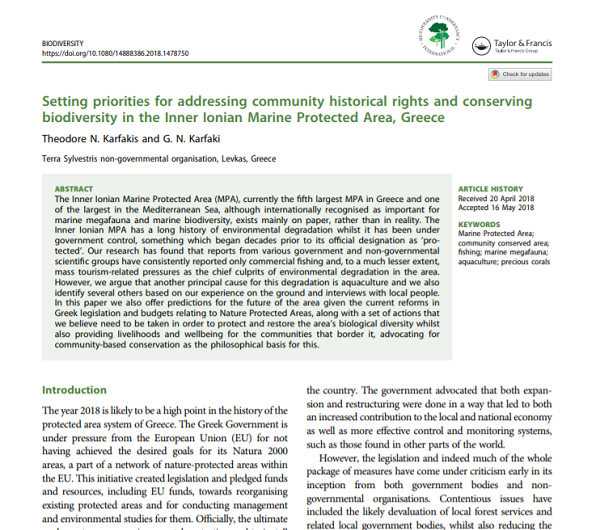First published on 09/29/2018, and last updated on 03/30/2019
Setting priorities for addressing community historical rights and conserving biodiversity in the Inner Ionian Marine Protected Area, Greece; Theodore N. Karfakis & G. N. Karfaki (2018): Setting priorities for addressing community historical rights and conserving biodiversity in the Inner Ionian Marine Protected Area, Greece, Biodiversity, DOI: 10.1080/14888386.2018.1478750
The Inner Ionian Marine Protected Area (MPA), currently the fifth largest MPA in Greece and one of the largest in the Mediterranean Sea, although internationally recognised as important for marine megafauna and marine biodiversity, exists mainly on paper, rather than in reality. The Inner Ionian MPA has a long history of environmental degradation whilst it has been under government control, something which began decades prior to its official designation as ‘protected’. Our research has found that reports from various government and non-governmental scientific groups have consistently reported only commercial fishing and, to a much lesser extent, mass tourism-related pressures as the chief culprits of environmental degradation in the area. However, we argue that another principal cause for this degradation is aquaculture and we also identify several others based on our experience on the ground and interviews with local people. In this paper we also offer predictions for the future of the area given the current reforms in Greek legislation and budgets relating to Nature Protected Areas, along with a set of actions that we believe need to be taken in order to protect and restore the area’s biological diversity whilst also providing livelihoods and wellbeing for the communities that border it, advocating for community-based conservation as the philosophical basis for this.
